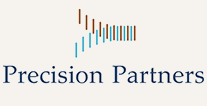Advancement Constituent Relationship Management (CRM) databases are essential to your development office. If used correctly, the advancement CRM provides insights about donors and supports their growing relationship with the institution.
The advancement CRM can support everyone involved in the donation process through donor-centric interactions. This is important because philanthropists expect organizations to demonstrate the impact of their support and engage them effectively. At the same time, development officers wish to approach supporters with a thoughtful strategy that will help them to achieve their philanthropic goals or establish a legacy.
Donor-centric interactions can’t happen if the information is not being captured within the advancement CRM. For example, a new development officer starts at your institution and receives their portfolio of prospects from the previous officer. The new officer begins to engage an existing prospect that was managed by another officer for three years.
But there is minimal information about past contact within your advancement CRM. This limits the depth of any strategy developed by the new development officer, requiring them to basically start from scratch. Multiply this by 30, 50, or 75 prospects in their portfolio, and the development officer may spend substantial time making a connection with their prospects.
What’s even worse, and potentially embarrassing, is if a development officer is required to ask for information the donor has already shared—some of which may be painful, especially if the donor is asked to retell the story of losing their loved one.
Your advancement CRM is vital to your donor strategy, but development officers may be reluctant to use it. We discuss frequent complaints and how you can encourage your team to use your advancement CRM.
Complaint #1: The advancement CRM database information is unreliable.
With this complaint, the problem is often data quality issues. For example, is the data unreliable because it is incorrect, missing, or not up to date?
The solution requires developing strategies that address your specific data quality issue. This often starts with empowering a culture of good data. Everyone should be held responsible for accurate information in the advancement CRM database. If not, establish ways to empower and encourage good data throughout your organization.
Complaint #2: I need to be fundraising and not entering data into an advancement CRM database.
Too often, development officers don’t want to be bogged down with data entry. But information in the advancement CRM database is an asset. There is often a correlation between a development officer’s success and an effective CRM. The advancement CRM is meant to capture information about the supporter, establish a strategy, and help the development officer to engage the donor following that strategy.
Combat this complaint by reviewing your prospect management guidelines. The prospect management guidelines should be a working document to help your development officers with managing their portfolio of prospects. The guidelines should include the prospecting strategy, plan of action, and contact report or interactions that provide information on how the program works.
Complaint #3: The advancement CRM database is too complicated and cumbersome.
This complaint often arises when business processes and workflows are overly complicated or disconnected from the development officer’s core needs.
The solution is to redefine success for a development officer. Then, standardize business processes and workflow to provide them with the tools they need to assess their progress. They should be able to answer these questions:
- How am I doing?
- How is my team doing?
- How is the development office doing?
Training should also combine a review of prospect management values and objectives in a way that doesn’t become complicated or cumbersome.
When development officers complain or reluctant toward using your advancement CRM database, it can often be contributed to a misunderstanding or lack of training. Identifying the “why,” “what,” and “how” proficiency in your advancement CRM database business processes and workflow is often a simply, and effective solution.

